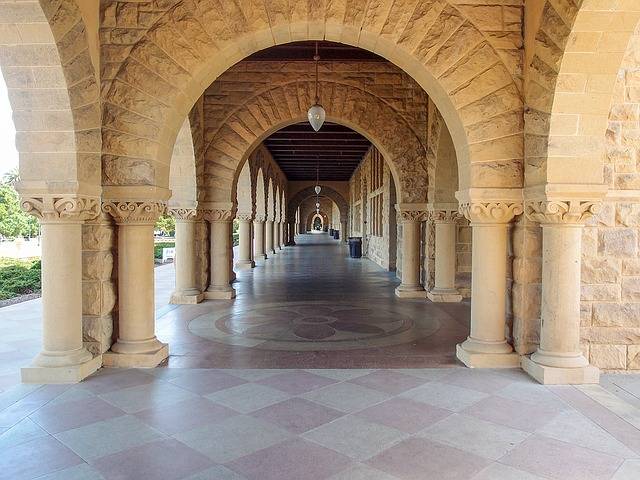California has a lot to offer. It’s the most populous state at around 38 million people. Its coastline is home to some of the best beaches in the world, and companies specializing in everything from entertainment to environmental technology proudly call this coastal state home. These factors present many opportunities for students looking to pursue an LL.M.
 Studying an LL.M. in Los Angeles
Studying an LL.M. in Los Angeles
Much of California’s allure stems from Los Angeles, a city known worldwide for its sun, atmosphere and, of course, cultural output. The city is also home to a number of world-class law schools offering LL.M. programs.
“We’re located in the center of the entertainment industry,” says Misa Shimotsu-Kim, Assistant Dean of Graduate and International Programs at the University of Southern California Gould School of Law. USC Law is situated in south Los Angeles, just a short drive away from downtown. “We’re fortunate to attract stellar adjunct faculty who work in the [entertainment] business and bring real-life knowledge and expertise to the classroom.”
Media and Entertainment Law is a popular field for California-based LL.M. students; in fact, three of LLM GUIDE’s top listed schools in the field are located in southern California. While much can be learned from nearby Los Angeles, incredible value is derived from the universities themselves.
The University of California, Los Angeles, School of Law, for example, allows students to “widen the scope of their knowledge with course offerings at UCLA’s renowned business and film schools,” says Lara Stemple, Assistant Dean for Graduate Studies and International Student Programs at UCLA. Students are given “an interdisciplinary approach to coursework [and] immersive academic opportunities,” she explains – all made better by the fact that the school is located “at the heart of a bustling, dynamic metropolis on a beautiful campus with unrivaled facilities.”
Those who are interested in pursuing an LL.M. in Los Angeles or the greater southern California region have many options. Beyond USC and UCLA, Loyola Law School offers LL.M. programs in a number of disciplines, from Entertainment & New Media Law to Intellectual Property Law; and the Malibu-based Pepperdine University School of Law has a well-regarded LL.M. in Dispute Resolution on offer, in addition to other programs.
Further south, prospective LL.M. students can find offerings at UC Irvine’s School of Law and the University of San Diego, among other law schools.
California: welcoming international students with open arms
Both Los Angeles and California in general are welcoming to foreigners; immigrants compose over a quarter of the state’s population. California schools reflect this by offering international programs incorporating aspects of California life into their curricula.
“Growing up internationally – I’m Dutch/Aruban/Zimbabwean – I wanted to do a program that was internationally driven,” says Rogier Bogle van Geel, a former USC Law LL.M. student.
Bogle van Geel can speak at length to the academic value of his time spent at USC Law, but what really excites him is being a part of the Trojan family. “You get a sense of the international community and of building bridges between different cultures that come into [an] LL.M. program, and at USC in general. I still have a lot of friends from [the] program.”
Following graduation, “a majority of foreign LL.M. graduates return to their home countries or another country abroad,” notes Stemple. However, others will find “work experience in US legal settings through short-term appointments as part of their Optional Practical Training.”
An LL.M. student’s ability to work in the United States during or following their studies is dependent on their visa; specifics regarding work-related issues can be resolved by speaking with relevant school personnel.
As entertainment-focused as a Los Angeles education might sound, schools in the area provide considerable options for students who wish to study in fields outside of the industry. UCLA Law offers single year LL.M. programs with specializations in Human Rights, International and Comparative Law, Law and Philosophy, and more, though some specializations, such as Critical Race Studies and Public Interest Law, require a separate admissions process.
USC Law, in contrast, offers one-year LL.M. programs in fields like International Business and Economic Law and Alternative Dispute Resolution, encouraging students to expand their specialization through the pursuance of certificates. LL.M. students at USC Law can receive multiple certificates in areas ranging from Transnational Law and Business to Technology and Entrepreneurship Law. A two-year Extended Master of Laws degree is also available.
Following graduation opportunities only expand, promises Stemple: “[UCLA Law] LL.M. graduates ... pursue opportunities in roles such as associates in corporate firms ... executives and directors of business and legal affairs departments, research and legal analysts at non-profits and international governmental entities, and more.” Others who wish to continue their education transfer into JD programs.
 Further north: LL.M. programs in San Francisco, Silicon Valley, and beyond
Further north: LL.M. programs in San Francisco, Silicon Valley, and beyond
If the sunshine of southern California fails to excite, plenty of options exist for those interested in pursuing an LL.M in the state’s woodier northern territory.
With their strong academic track record and proximity to both the tech giants of San Francisco and the natural flora and fauna of northern California, schools like the Silicon Valley-based Stanford University and the University of California, Berkeley, School of Law, located on the east side of the San Francisco bay, are top choices for those looking to pursue an LL.M. degree in the state.
“Students are drawn by the beauty and attractions of the San Francisco Bay Area,” says William Fernholz, a Lecturer in Residence at Berkeley Law.
The natural allure of the campus is only one of the university’s manifold offerings, claims Eric Biber, Professor of Law and Director of Environmental and Energy Law Programs at Berkeley Law. “[There are] a broad range of opportunities to engage with practice in the Bay Area and California, an abundance of student groups, and an excellent alumni network,” in addition to the numerous “faculty and classes that cover a wide range of topics within the fields.”
Among these topics are classes and work positions in Energy Law and Environmental Law – fields where Berkeley Law is considered a leader. “California is the state leading all others in combating climate change and protecting the environment,” explains Fernholz. “Berkeley Law has a unique role in the nation concerning the intersection of energy policy and environmental protection.”
That said, Fernholz is quick to remind potential students that the school’s expertise extends beyond these areas. In addition to Energy Law and Environmental Law, “students are drawn to our peerless intellectual property and business law faculty and courses” – fields right at home in nearby Silicon Valley.
To better prepare its students for the real world, Berkeley Law’s LL.M. program is specifically designed to get students working and talking with their colleagues. “With the exception of two introductory courses, LL.M. students in the academic year take classes with their domestic JD colleagues,” making them “better integrated into the law school than at some of our peer institutions,” emphasizes Fernholz.
Beyond Silicon Valley and the East Bay, the city of San Francisco itself is home to a number of LL.M. programs at law schools such as the University of San Francisco School of Law, Golden Gate University, and UC Hastings, among others.
Outside of San Francisco, top LL.M. programs can be found in other parts of northern California, such as the University of California, Davis School of Law and the Sacramento-based McGeorge School of Law at the University of the Pacific.
But no matter where one goes in the state, it seems the element that ties all of these schools together is their sense of togetherness.
“Everyone is committed to creating the best experience for students, and that unity of purpose is inspiring,” says Susan Whitman, Assistant Dean of Academic Planning and Coordination at Berkeley Law.
Back at USC Law, Bogle van Geel agrees: “LA is such a vibrant city, and being part of the Trojan Family makes you feel like part of the fabric when you come in as a foreigner.”











